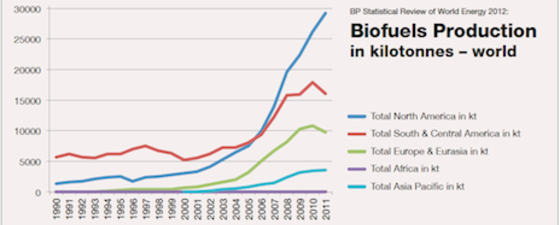The sharp oil price rise since 2003 has revived interest in oil, and companies are jostling to secure access to new reserves in Africa, Asia and Latin America.
Protectionism and political unrest have curbed investment activity in many areas with cheap, producible, conventional oil reserves. This, coupled with high oil prices, has triggered the innovation of new technology, turning unconventional reserves previously seen as unprofitable into financially viable fields. So far the oil companies have concentrated on shale oil production in the US, oil sands in Canada, pre-salt oil from Brazil and heavy oil from Venezuela.
Based on a field-to-field survey by Maugeri, the world’s overall oil production capacity may rise by as much as 17.6 MMbo from today’s level in the period to 2020, with the major part expected to come on stream from 2015. The study is based on a long-term oil price of US$70/barrel, implying a significant drop from today’s level of around US$110/barrel. It is now widely feared that this sharp increase in new production capacity worldwide may outmatch new, more expensive, conventional oil production projects in countries such as Norway, Russia and the Arctic region, curb activity levels in the offshore oil industry and reduce revenues to the oil sector and oil exporters.
But is intensified competition on the supply side really what oil producers should be most worried about in the long run? Should the changes in consumers’ choice of energy source that have been triggered by the high oil prices not be seen as at least equally challenging?
The oil companies are used to competing under demanding market conditions, and technological advances will make new, more expensive, oil production in areas such as Norway, Russia and the Arctic region more competitive going forward. In addition, we do not consider it very likely that the entire production capacity expansion will be carried out, as the risk of political unrest, new regulation as well as lack of infrastructure and investments could lead to delays or cancellation of projects. This will also curb the oil price decline.
Energy Challenges
The strong oil price growth combined with an increased focus on the environment has triggered a process of changes on the demand side that may pose major challenges for the oil industry in the long run.
Development of new technology that makes it possible to use other types of energy in areas that have previously been dominated by oil, the focus on energy efficiency optimization, price trends for competing products and environmental concerns all contribute to changing consumers’ preferred energy sources. This is particularly important in the transport sector, which accounts for more than half of global oil consumption and where oil-based fuels have been used almost without competition. But the oil market’s last bulwark may soon fall. The strong oil price growth and growing focus on the environment over recent years have also forced the transport sector to develop more efficient fuel types and fuel solutions. Once a new competitive technology that uses other energy sources than oil has been developed, the sheltered position of oil in the transport market will be threatened. Technological advances cannot be reserved and this will affect the outlook for oil demand in the long term.
Of course, it will take time for the production and availability of new fuel types to make any major impact on the fuel market. The more that prices of oil-based fuel are compared to other energy types, the more the innovation of new fuel types and engines will accelerate.
Globally, biofuel production has tripled since 2005, and airlines are researching the possibility of using algae fuel, while competitive prices of natural gas, rising production of unconventional gas and an expansion of LNG capacity have boosted interest in gas on the transport side. How soon non-oil based products will get a widespread breakthrough in the international fuel market will depend on the prices of oil, environmental and transport policies, infrastructure construction and economic trends.
New advances on the transport side may be a more serious challenge in future for the oil sector and for oil prices than harsher competition caused by an expansion of global production capacity. Increased production capacity and slightly lower oil prices will probably slow the pace and innovation of new fuel types on the transport side. Maybe lower oil prices will be more of a good thing than a bad thing?





